
Cover story: Why SoftBank changed gears in India
The Japanese investment fund has rejigged its India strategy after deploying nearly $14 billion since cutting its first cheque a decade ago
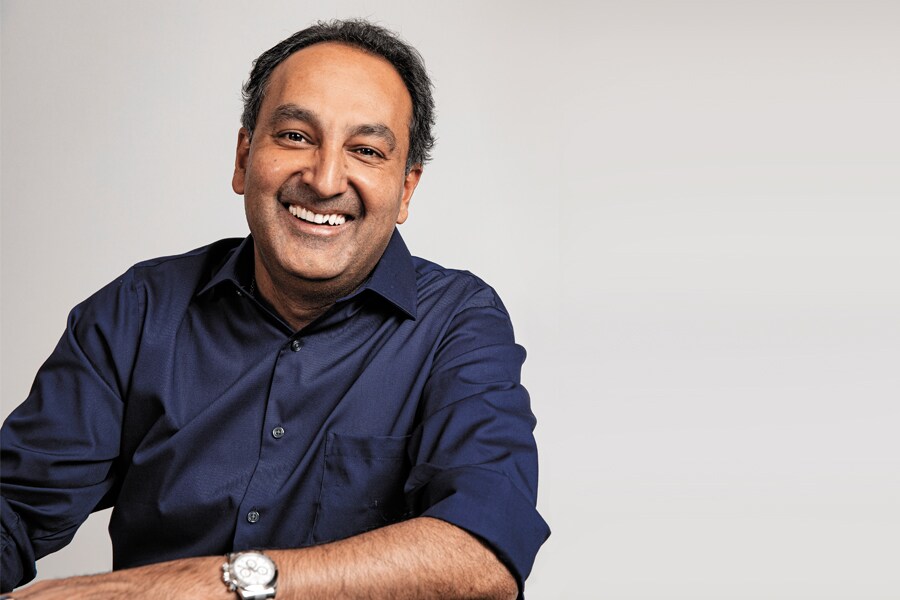 Every economic cycle will have summers and winters, but we are not seasonal investors. We stand behind founders who are executing their bold visions.: Munish Varma, Managing partner, SoftBank Investment Advisers India
Every economic cycle will have summers and winters, but we are not seasonal investors. We stand behind founders who are executing their bold visions.: Munish Varma, Managing partner, SoftBank Investment Advisers India
Image: Jake Chessum
Until the lockdown hit in March 2020, like most firms, SoftBank India’s team used to meet once a week on a Monday meeting. But things changed as everyone started adapting to working from home. The 12-member team now met online twice a week as it had become all the more important to assess the impact of the lockdown on the portfolio firms, some of which had to halt operations abruptly. These included ride-hailing service provider Ola, hotel aggregator Oyo Rooms, omnichannel eyeware brand Lenskart and logistics firm Delhivery.
“When the pandemic struck, we wanted to understand the new status quo. While we were still under lockdown, China was theoretically coming out of it, so what were the lessons that we could take from them?” explains Sumer Juneja, partner and head of investing in India at SoftBank India Investment Advisors over a Zoom call from his office in Worli, Mumbai.
In April, the team decided that it should do a knowledge-sharing session of portfolio companies across these two countries. By mid-May, SoftBank had lined up a meeting with the top brass of Delhivery, PolicyBazaar and FirstCry, among others, and its China portfolio companies in similar businesses, like ZhongAn Online P&C Insurance and Full Truck Alliance Co.
SoftBank, and its India portfolio firms, spotted a few trends early that may seem obvious today, courtesy of such meetups: Revenge shopping, the faster adoption of online tuition classes and the increase in sales premiums in life and term insurance policies. There were other learnings, too. Full Truck’s founder explained how Delhivery should now manage logistics because unlike other companies, logistics can’t shut down half its capacity without disrupting the entire value chain; either all parcels reach from one pin code to the other or the entire batch of shipment gets halted. (Full Truck Alliance, an Uber-like trucking startup, went public this June by raising $1.6 billion in the US.)
(This story appears in the 30 November, -0001 issue of Forbes India. To visit our Archives, click here.)




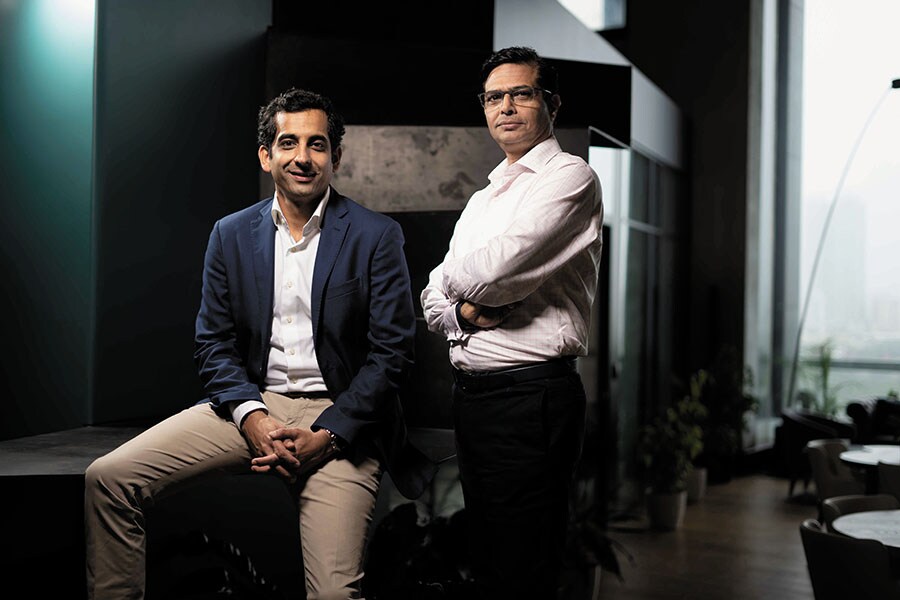 Sumer Juneja (left), partner and head of investments at SoftBank Investment Advisers India, believes the fund’s job is to try and open doors for its portfolio companies. Vikas Agnihotri (right), operating partner
Sumer Juneja (left), partner and head of investments at SoftBank Investment Advisers India, believes the fund’s job is to try and open doors for its portfolio companies. Vikas Agnihotri (right), operating partner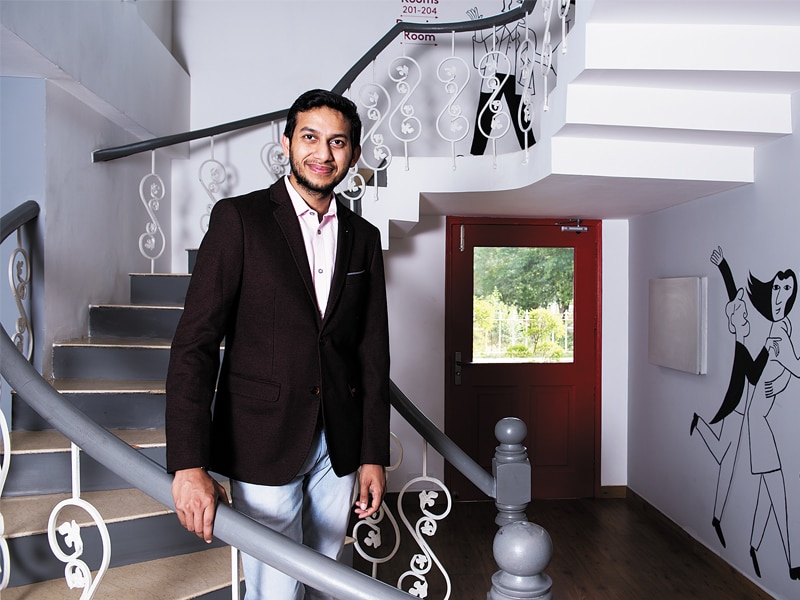 Founder and CEO Ritesh Agarwal says Oyo began its journey with SoftBank very early in the company’s lifecycle
Founder and CEO Ritesh Agarwal says Oyo began its journey with SoftBank very early in the company’s lifecycle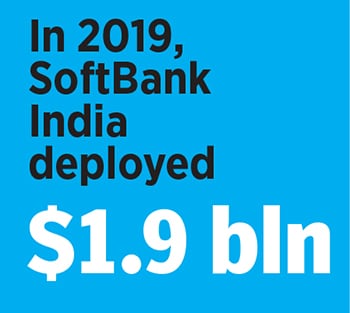 Aatrey was at his eloquent best once the presentation began, but within minutes, Juneja interjected. “Who is this Anu aunty? What is this?” asked the baffled VC and stared at Sarthak, who looked equally bemused. Aatrey, though, stayed calm. “You need to understand Anu aunty.” Once the meeting ended, both the parties decided to stay in touch.
Aatrey was at his eloquent best once the presentation began, but within minutes, Juneja interjected. “Who is this Anu aunty? What is this?” asked the baffled VC and stared at Sarthak, who looked equally bemused. Aatrey, though, stayed calm. “You need to understand Anu aunty.” Once the meeting ended, both the parties decided to stay in touch.  Vidit Aatrey (left) and Sanjeev Barnwal co-founded Meesho in 2015
Vidit Aatrey (left) and Sanjeev Barnwal co-founded Meesho in 2015
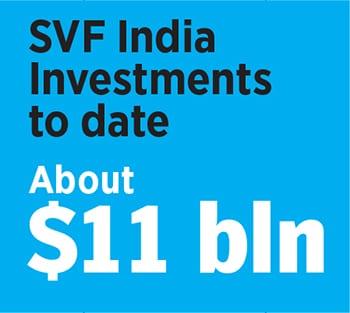 Like WeWork, where the fund’s investment value decreased by $8 billion in 2019, SoftBank has had its setbacks in India too. Snapdeal, in which it had invested $927 million, is a much-scaled-down version of its earlier avatar; the once-high-flying, but later brought down to earth Housing.com has been merged with Proptiger and, in January this year, Kavin Bharti Mittal’s messenger service Hike, a one-time unicorn, was taken down from the app stores; Hike is now looking at new business models.
Like WeWork, where the fund’s investment value decreased by $8 billion in 2019, SoftBank has had its setbacks in India too. Snapdeal, in which it had invested $927 million, is a much-scaled-down version of its earlier avatar; the once-high-flying, but later brought down to earth Housing.com has been merged with Proptiger and, in January this year, Kavin Bharti Mittal’s messenger service Hike, a one-time unicorn, was taken down from the app stores; Hike is now looking at new business models.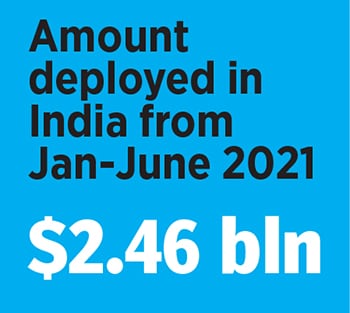 “We started our journey with
“We started our journey with 



